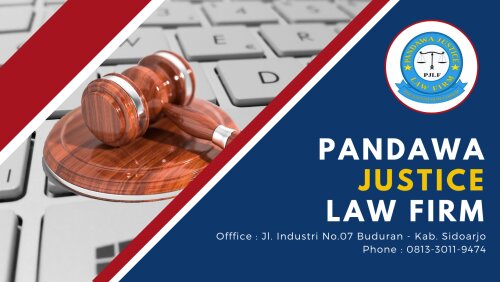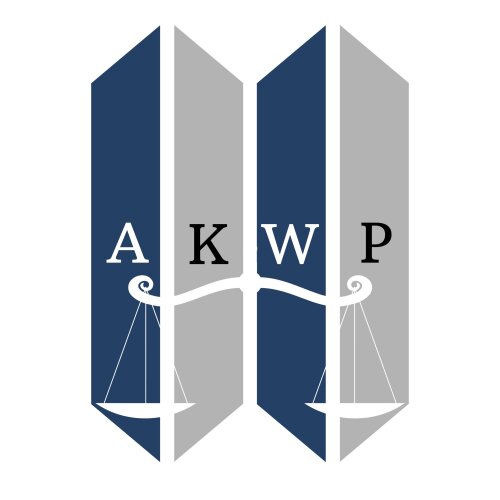Best Native People Lawyers in Indonesia
Share your needs with us, get contacted by law firms.
Free. Takes 2 min.
Or refine your search by selecting a city:
List of the best lawyers in Indonesia
About Native People Law in Indonesia
Indonesia is home to an incredibly diverse population of Native or Indigenous Peoples, known as "masyarakat adat." These communities are distributed across the Indonesian archipelago and have their unique customs and traditions. Native People in Indonesia often live on ancestral lands and rely heavily on natural resources, making land rights and resource management central to their legal issues. The Indonesian Constitution recognizes the rights of Indigenous Peoples, but tensions often arise due to development projects, land disputes, and resource extraction, all of which necessitate a robust legal framework and advocacy for Indigenous rights.
Why You May Need a Lawyer
Legal issues concerning Native People in Indonesia often involve complex interactions between customary laws, state laws, and international standards. Here are some common situations where legal advice is necessary:
- Land Disputes: Many Indigenous communities face conflicts over land ownership and use, often against corporations or governmental projects.
- Resource Rights: Issues related to the exploitation of natural resources on Indigenous lands, including forestry, mining, and fisheries, frequently arise.
- Cultural Preservation: Legal support might be needed to protect cultural heritage and prevent the unauthorized use of Indigenous knowledge or traditions.
- Environmental Protection: Indigenous groups may need legal advocacy to protect their lands from environmental degradation.
- Human Rights Violations: There might be cases of abuse or discrimination against Indigenous Peoples that require legal intervention.
Local Laws Overview
Several key laws pertain to Indigenous Peoples in Indonesia:
- The 1945 Constitution: Recognizes the existence of Indigenous Peoples and their traditional rights.
- Law No. 5 of 1960 on Agrarian Principles: Addresses land rights and the recognition of customary lands.
- Law No. 41 of 1999 on Forestry: Governs the management of forest areas that may fall within Indigenous territories.
- Law No. 32 of 2009 on Environmental Protection: Provides for Indigenous rights related to environmental management.
- Decision of the Constitutional Court No. 35/PUU-X/2012: Landmark ruling that redefines the rights of Indigenous Peoples to manage their customary forests.
Frequently Asked Questions
1. What constitutes a Native or Indigenous Person in Indonesia?
"Masyarakat adat" or Indigenous Peoples in Indonesia are groups that have distinct social, cultural, and economic practices influenced by traditional norms and ancestral territories.
2. What are customary laws?
Customary laws are unwritten laws that are based on the traditions and customs of Indigenous communities.
3. How are Indigenous land rights recognized in Indonesia?
Land rights are recognized through both the formal legal system and the customary principles upheld by each community, although enforcement and recognition can vary widely.
4. Can Indigenous communities have commercial relationships?
Yes, Indigenous communities can engage in commercial activities, often involving negotiations regarding resource extraction or tourism.
5. What are some common challenges Indigenous communities face?
Common challenges include land grabbing, environmental degradation, and lack of enforcement of legal protections.
6. How can Indigenous Peoples defend their rights?
Through legal advocacy, seeking assistance from NGOs, and pursuing cases in the national and local courts.
7. Are there international frameworks that protect Indigenous rights?
Yes, frameworks such as the United Nations Declaration on the Rights of Indigenous Peoples offer international support.
8. What role do NGOs play in supporting Indigenous rights?
NGOs often provide legal aid, advocacy, and support in areas including land rights, environmental justice, and human rights protection.
9. What impact has modernization had on Indigenous laws?
Modernization presents both challenges and opportunities, often creating tension between traditional practices and national development goals.
10. How can one learn more about Indigenous Peoples in Indonesia?
Through engagement with cultural preservation projects, academic research, and collaboration with community leaders and organizations.
Additional Resources
Here are some resources and organizations that might be helpful:
- AMAN (Aliansi Masyarakat Adat Nusantara): A leading Indigenous Peoples' organization advocating for indigenous rights in Indonesia.
- WALHI (Indonesian Forum for Environment): An NGO focusing on environmental issues, often intersecting with Indigenous rights.
- Indigenous Peoples Alliance of the Archipelago (IPAA): A coalition working on land rights and cultural preservation.
- Ministry of Social Affairs: Government body responsible for affairs related to marginalized communities, including Indigenous Peoples.
Next Steps
If you need legal assistance regarding Indigenous Peoples' issues in Indonesia, consider the following steps:
- Contact an organization like AMAN or WALHI for initial guidance and resources.
- Research and consult with lawyers specializing in Indigenous and environmental law.
- Gather documentation and evidence related to your situation, such as land titles or records of communication with authorities.
- Explore mediation options with involved parties, utilizing customary dispute resolution processes if applicable.
- Stay informed about local and international developments that might affect your rights or legal standing.
Lawzana helps you find the best lawyers and law firms in Indonesia through a curated and pre-screened list of qualified legal professionals. Our platform offers rankings and detailed profiles of attorneys and law firms, allowing you to compare based on practice areas, including Native People, experience, and client feedback.
Each profile includes a description of the firm's areas of practice, client reviews, team members and partners, year of establishment, spoken languages, office locations, contact information, social media presence, and any published articles or resources. Most firms on our platform speak English and are experienced in both local and international legal matters.
Get a quote from top-rated law firms in Indonesia — quickly, securely, and without unnecessary hassle.
Disclaimer:
The information provided on this page is for general informational purposes only and does not constitute legal advice. While we strive to ensure the accuracy and relevance of the content, legal information may change over time, and interpretations of the law can vary. You should always consult with a qualified legal professional for advice specific to your situation.
We disclaim all liability for actions taken or not taken based on the content of this page. If you believe any information is incorrect or outdated, please contact us, and we will review and update it where appropriate.
Browse native people law firms by city in Indonesia
Refine your search by selecting a city.

















